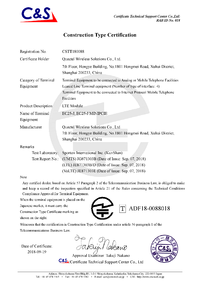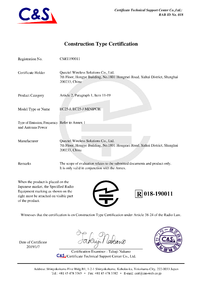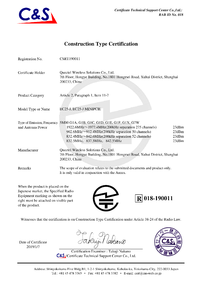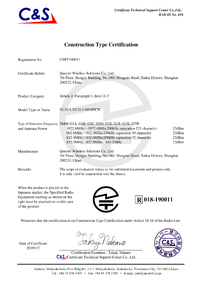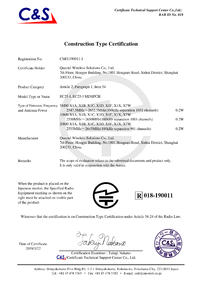TRB245 Giteki

The Japan Radio Law covers all products which utilize the radio spectrum and operate under 3 THz. Specified Radio Equipment Devices are subject to mandatory approvals. It aims at increasing public welfare by securing fair and efficient use of an electric waves. Testing is conducted on one sample unit for each type of radio equipment (officially called "construction design"), for attestation of the construction design. This is called the "construction design attestation system."
Description
This certification applies to all products using the radio frequency spectrum. The Giteki mark is a visible indication of a product's compliance with applicable Japans regulatory arrangements, including all technical and record-keeping requirements.
TRB245 Marking
TRB245 (Japan version) uses integrated TELEC/JATE certified mobile module EC25-J:
- Specified Radio Equipment marking [R] No.: 018-190011
- Construction Type Certificate marking [T] No.: ADF18-0088018
EC25-J Wireless Module Approval
Product code: TRB245 (Japan version)
To download a PDF versions of the declaration for: module (1/5), module (2/5), module (3/5), module (4/5) , module (5/5) .
External links
Disclaimer:
Test reports that are referenced in declarations and certificates can be provided upon request. For the request to be approved, the recipient of the test reports should be a certification authority or certified test house. The recipients will be asked to sign a non-disclosure agreement (NDA).

